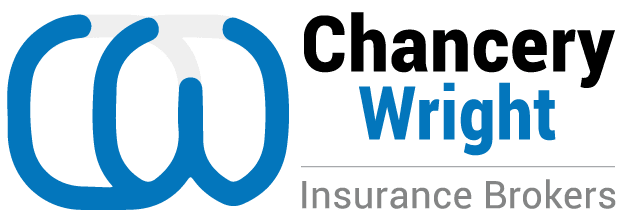
15. What types of data visualization techniques can be used to better understand agricultural trading and commodity markets?
What is an Agricultural trading and commodity markets. ERP System?
An Agricultural trading and commodity markets. ERP system is a type of software and technology platform used to manage sales, costing, production, shipping, inventory, budgeting, accounting and other processes associated with agricultural trading and commodity markets. It helps to increase visibility, efficiency and accuracy when dealing with agricultural trading related tasks.
Why You Need an Agricultural trading and commodity markets. ERP System?
Investing in a quality ERP system is essential for businesses involved in the agricultural trading landscape, as it helps streamline processes, improve visibility and help to improve accuracy. An ERP system offers features such as budgeting, forecasting, inventory and cost management and other types of functionality to help businesses manage their trading operations more effectively.
Top Agricultural trading and commodity markets. ERP System Features to Look For
When selecting an ERP system for your agricultural trading and commodity markets enterprise, there are certain features and capabilities you should look for. Below are the top ERP system features you should consider.
1. Accounting Features
An ERP system should include tools to track expenses, manage taxes and calculating cost of goods sold.
2. Data Analysis
An effective ERP system should offer insights on trends, patterns and forecast in the agricultural trading and commodity markets industry you need to make more informed decisions.
3. Automation
Automation features in an ERP system can help speed up the process of tracking sales, inventory and orders, improving efficiency.
4. Multi-currency Support
It’s essential that you choose an ERP system which supports multiple currencies, as this will allow you to better manage international transactions when trading agricultural commodities.
5. Regulatory Compliance
Make sure the ERP system you select is compliant with the regulations which pertain to your agricultural trading and commodity markets industry, including privacy and other considerations.
Budgeting for Your Agricultural trading and commodity markets. ERP System
The cost of ERP systems can vary greatly depending on the features, scalability and other considerations. Before investing in an ERP system, you should ensure that it comes with all the features and support you need at the right price.
Steps to Find and Get Started With Your Agricultural trading and commodity markets. ERP System
Once you have determined your needs, budget and the features you’ll require in your ERP system, it’s time to start looking for the right one for your business. You can begin by researching the leading ERP systems for agricultural trading and commodity markets and then contacting vendors for quotes and to discuss the features and advantages of their systems.
The Best 5 Agricultural trading and commodity markets. ERP System on the Market
When selecting an ERP system for your agricultural trading and commodity markets business, you have many options to choose from. Below is a list of the top 5 ERP systems you can use in 2023:
- Odoo: Odoo is a cloud-based ERP system which offers features such as invoice management, budgeting, customer relationship management and more. Advantages include its ability to quickly deploy and its affordability. Disadvantages are its lack of inventory tracking features and its limited number of customer service options.
- Microsoft Dynamics: Microsoft Dynamics is a cloud-based ERP system which offers an intuitive user interface and customizable workflow solutions for agricultural trading and commodity markets businesses. Advantages include its mobile app integration and its ability to scale quickly. Disadvantages are its complexity and expensive implementation costs.
- NETSuite: NETSuite is a cloud-based ERP system specifically designed for agricultural trading and commodity markets businesses. Its main specialties include financial and inventory management, retail and CRM solutions. Advantages include its scalability, user-friendly interface and its integrated modules. Disadvantages are its expensive setup and slow customer service response times.
- SAP Business One: SAP Business One is an on-premise ERP system which offers features such as budgeting and forecasting, financial management and integration with other applications. Advantages include its affordability and ability to scale up quickly. Disadvantages are its lack of customer service support and its integration with other applications.
- Oracle E-Business Suite: Oracle E-Business Suite is a cloud-based ERP system which offers features such as budgeting and forecasting, financial management and integration with other applications. Advantages include its customizable workflow solutions and its user-friendly interface. Disadvantages are its expensive setup and limited customer service options.
Summarized Table of the ERP System and Key Features
| ERP System | Accounting Features | Data Analysis | Automation | Multi-Currency | Regulatory Compliance |
|---|---|---|---|---|---|
| Odoo | Yes | Yes | Yes | Yes | Yes |
| Microsoft Dynamics | Yes | Yes | Yes | Yes | Yes |
| NETSuite | Yes | Yes | Yes | Yes | Yes |
| SAP Business One | Yes | Yes | Yes | Yes | Yes |
| Oracle E-Business Suite | Yes | Yes | Yes | Yes | Yes |
Conclusion
Finding the right ERP system for your agricultural trading and commodity markets business can seem like a daunting task, but it doesn’t have to be. With a bit of research and understanding of your needs, you can find an ERP system which can provide you with the features and capabilities you need to be successful. Odoo is a great option for businesses operating in the agricultural trading and commodity markets industry in 2023.

























